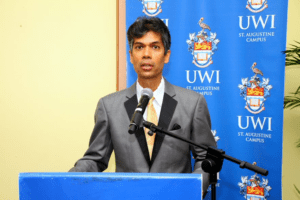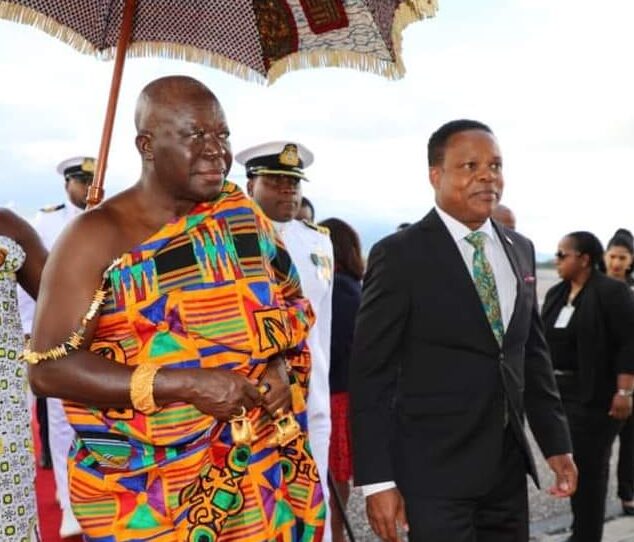
MANY of us overlook the significance of the annual observance of Emancipation Day in Trinidad and Tobago.
Certain questions must be asked- What were the conditions of slavery and factors leading to the emancipation of the slaves?
How did the ex-slaves respond to their new found freedom?
And who should be given credit for the celebration of Emancipation Day in its present format? Numerous factors contributed to the eventual freedom of these enslaved peoples.
The horrors and brutality of African slavery cannot be compared to any other oppressive system of the past centuries.
Disobedient and seemingly stubborn slaves would endure the horrible punishment of having parts of their bodies- e.g. arms, feet or fingers cut off. Many suffered a gruesome fate as they bled to death. The evils of the system would cause one to recoil in horror as some slaves were tied or buried and covered with sugar, and left to be eaten alive by insects.
The list of suffering was long as slaves were roasted over slow fires, horribly mutilated in boiling wax or sugar, burnt with a hot piece of wood, flogged, mercilessly tortured, raped and babies killed. Salt and pepper poured into bleeding wounds. Those thought guilty of planning revolts or poisoning the planters were murdered. Of course the people who committed these acts were never jailed or fined because the slaves were their property. They were guilty of participating in a massive genocide.
Added to the physical violence and separation from families, slaves endured a cultural genocide- they were forced to renounce their religious beliefs, languages, names, rituals and customs. They were continuously degraded and dehumanised.
All policies of the planters and slave traders were designed to oppress these enslaved Africans.
These intolerable conditions in the West Indies precipitated dissatisfaction and so slaves revolted and rebelled. Their hearts burned with anger and rage. Men and women such as Toussaint L’Ouverture, Boukman, Nanny, Cuffy and Daaga ignited the fires of freedom in the hearts of the enslaved and so were the real Caribbean emancipators.
Therefore, the emancipation of enslaved Africans was a gradual process which eventually culminated in the passage of the Emancipation Bill in the British Parliament in 1833 by Thomas Buxton. Freedom was finally achieved after more than two centuries of struggles and suffering by the forgotten African martyrs whose blood, tears and sweat mixed with the fertile Caribbean soil and created kings of sugar, coffee and cocoa.
The Emancipation Act, became effective on August 1, 1834, yet gave only partial dignity and freedom. The dreaded Apprenticeship system was then introduced as a transition to freedom. The ex-slaves would be apprenticed to their former masters for six years.
However, violent protests from these apprentices forced the House of Assembly (the governing body in each country, similar to our Parliament) to reduce the Apprenticeship term from six to four years. At this time Trinidad had a population of approximately 17,000 slaves which was small when compared to Jamaica with 254,000 or British Guiana with 70,000 slaves.
In Trinidad, on 1 August 1834, thousands of enraged slaves entered Port of Spain and assembled at the Government House (present site of Treasury). This alarmed Governor George Hill and he called out the militia. After six days of protests, in which ex-slaves were flogged and jailed, the Governor reluctantly decided that complete freedom would be granted on August 1, 1838.
We need to be mindful of two facts. Firstly, all of today’s African descendants cannot trace their ancestry to these discontented slaves who marched in Port of Spain in 1834.
During 1839-1849 an estimated 10,300 free Blacks from Grenada, St. Vincent and Barbados migrated to Trinidad. This island also received 8,000 liberated Africans from the United States, Sierra Leone and St Helena.
Thus, many Afro-Trinidadians have a colourful and varied past that extends beyond Trinidad and Tobago.
Secondly, 1838 meant the abolition of slavery ONLY in the British West Indian colonies. Slavery continued in other parts of the Americas. A few decades later, slavery ended in the French Empire in 1848, later in 1865, the United States abolished slavery, in 1880 the Spanish Empire and Brazil in 1888 outlawed slavery.
Dr Jerome Teelucksingh is an activist. He initiated the inaugural observances of International Day for the Elimination of Violence Against Men and Boys (January 31) and World Day of the Boy Child (May 16). He has made academic presentations at tertiary institutions including Harvard University and Oxford University.
See other articles by Dr Jerome Teelucksingh on AZP News:
Tobago’s Working Class in the 1920s, 1930s
Are Humble Caring Fathers Champions?
Influencing West Indian Masculinity
Defining Caribbean Masculinity
Is Monogamy Encouraged in the Caribbean
Naps Girls: From Humble Beginnings to Excellence
US Media Creates Cultural Dependency in the Caribbean
Bloodless Revolution to Save Lives in Developing Countries
The Need for a Social and Moral Revolution
The Law of Supply and Demand in Developing Countries
End the Dependency for Developing Countries
T&T Carnival and the Emperor’s New Clothes
The Influence of Labour on Caribbean Integration
The illusion of political Unity
Presbyterians in Trinidad: Humble Missionaries, Local Workers
Religious Plurality: Curse or Blessing
Caribbean Youth Need Optimism, Patriotism
Rethinking Identities in Caribbean, Latin America
November 19: All Inclusive International Men’s Day
Should International Agencies be Blamed for Unemployment
A Need to Observe Word Unemployment Day
An Ideology for the Trade Union Movement
The Man who Couldn’t be Prime Minister
Social Outburst vs Social Revolution
Challenges of the Men’s Movement
If George Floyd was Denied Parole
The Meaning of Indian Arrival Day in T&T
International Men’s Day – A Way of Life
Wounds that cause school violence
May Day: A Time for Solidarity, Strength
Who Coined the Term ‘Black Power’
The illusion of political Unity
Presbyterians in Trinidad: Humble Missionaries, Local Workers
Religious Plurality: Curse or Blessing
Caribbean Youth Need Optimism, Patriotism
Rethinking Identities in Caribbean, Latin America
November 19: All Inclusive International Men’s Day
Should International Agencies be Blamed for Unemployment
A Need to Observe Word Unemployment Day
An Ideology for the Trade Union Movement
The Man who Couldn’t be Prime Minister
Social Outburst vs Social Revolution
Challenges of the Men’s Movement
If George Floyd was Denied Parole
The Meaning of Indian Arrival Day in T&T
International Men’s Day – A Way of Life
Wounds that cause school violence
May Day: A Time for Solidarity, Strength
Who Coined the Term ‘Black Power’
![]()














